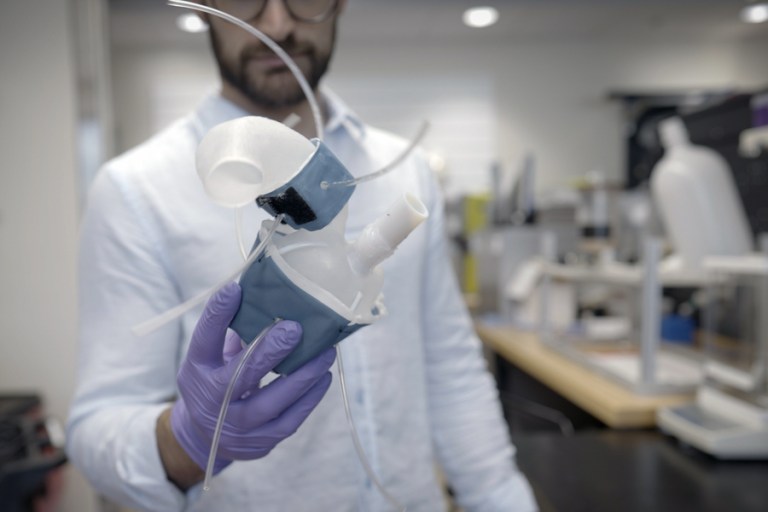Nice News readers already know that looking on the bright side can improve one’s life both physically and mentally, but recent research out of Harvard is offering further evidence on the health benefits of having a positive perspective. A longitudinal study found that an optimistic outlook could slow age-related physical decline in women.
Published in JAMA Psychiatry in March, the analysis involved nearly 6,000 postmenopausal women over age 65 who were recruited from 40 clinical centers across the country. At the beginning of the study, participants were asked to fill out a questionnaire that gave researchers insight into their levels of optimism.
The women’s physical functioning was then measured four times over the next six years via three different tests: grip strength, timed walks, and the number of times they were able to stand from a chair without using their hands.
During the baseline tests, higher optimism was associated with higher grip strength and a greater number of chair stands, but not with a greater walking speed. During follow-ups, however, walking speed declined more slowly in the women who were more optimistic, as did the number of chair stands they could do.

“More optimistic individuals may be more likely to stay physically active and have other healthier behaviors — e.g. healthier diet — that may help them maintain physical functioning,” paper author Dr. Hayami Koga told Newsweek.
She also pointed out that people with positive outlooks may be more likely to participate in social activities that encourage them to stay physically active, like volunteering or being involved in a religious community.
RELATED: Volunteering Later in Life Could Boost Your Brain, Study Finds: Here Are 7 Ways to Get Involved
“There may also be some neurobiological reasons,” Koga added. “For example, those with higher optimism may have healthier lipid, immune, or autonomic functioning that may lead to better physical functioning over time.”
Though the direct connection between physical health and optimism isn’t entirely clear, per the outlet, the researchers suggest that it could be related to positive people being more protected from the inflammatory damage that stress can cause.

The exact reason bright-siders may be more protected from stress is also still up in the air: A 1990 study found that optimistic people may be more resilient than their pessimistic counterparts, while a 2022 analysis found they simply don’t engage as often in stressful situations.
Other research has linked optimism to recovering more quickly from memory loss and even experiencing greater satisfaction in romantic relationships.
Koga and her fellow authors noted that because prior work has pointed to optimism being a dynamic psychological state rather than being an inert characteristic, their findings may have exciting implications in the future of geriatrics. “Given experimental studies suggesting that optimism is modifiable, it may be a promising target for interventions to slow age-related declines in physical functioning,” they wrote in the paper.
Learn five tips for learning how to think more positively.











